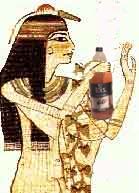St. Ides

St. Ides is the patron saint of malt liquor.
Life of St. Ides[edit | edit source]
In the chronicles of the history of beer, it is recorded that St. Ides was a Black Irishman, born in the town of Ballyspitoon in approximately 500 BC. Legend reports that his coracle went adrift on account of a fire hydrant which had been left open by local children, and as a result he found himself adrift, and ultimately washed ashore on the coast of Vinland, or, as it was known in his day, the United States of America.
Resigned to this fate, he devoted his life to preaching the Gospel. He converted the Bostonian Celtics, but, since Christianity had not yet been invented, he had to convert them to Roman Catholicism as the next best thing. His curiously wrought shoe, confected from canvas and caoutchouc, is preserved in the Shrine of St. Ides at the Cathedral Church of the Seven Lucky Devils in Worcester, Massachusetts. Pilgrims resort to the shrine of St. Ides' Shoe hoping to be healed of delirium tremens.
Worship of St. Ides[edit | edit source]
Followers of St. Ides (often known as Homies) can be seen pouring a portion of their malt liquor out into the gutter. This is often accompanied by the saying "for my fallen Homies". This is done as an offering to St. Ides so that he will protect and guide the souls of recently deceased Homies to Malt Liqour Heaven.
Visions of St. Ides[edit | edit source]
In 1992, Roshaunda Jackson of Passaic, New Jersey, reportedly had a vision of St. Ides. The saint informed her that if only more people would say the Rosary, God would cause the fall of the Soviet Union. Since the Soviet Union had already fallen, the Roman Catholic Church pronounced her visions authentic, and authorized Jackson to become the foundress of the Sodality of St. Ides, which strives to promote the veneration of the saint, and urges people to say the Rosary in hopes that God would destroy the Soviet Union some more.